Day 2: Here is what's happening at the Karachi Literature Festival
We're heading into Day 2 of the Karachi Literature Festival!
In case you missed our coverage of Day 1 you can see check it here.
Team Images is heading to Day 2 and we are here to keep you up to date with whats happening at KLF.
6:45: Heading out
Okay we are beat! So lets wrap up these sessions and head out!
But first! A glance at the Mushaira!

6:00: Erotext and screenings
Those last sessions took longer than we thought they would! But onwards we go!
Book Launch: Erotext: Desire, Disease, Delusion, Dream, Downpour by Sudeep Sen
Sundeep Sen talks about how to write good erotic texts. He says you have to understate things otherwise you go into the realm of pornography.

Rahm: A Nuanced Pakistani Interpretation of Shakespeare's *Measure for Measure*
Perween Rahman: The Rebel Optimist. Documentary screening
4:40: Love in a place of war and Liaquat Ali khan
Remembering Liaquat Ali Khan
Says biographer Roger Long, "Liaquat Ali Khan is one of the unsung heroes of the Pakistan movement."
He adds, "Liaquat was educated at home. He was a precocious child and learned some music and played a fair bit of tabla. He aspired to go to Aligarh Muslim University like one of his music tutors."
Long proceeds to explain how Liaquat Ali Khan remained interested in music and poetry even after law and politics. "He was known to be able to recite the Jawab-e-Shikwa by heart. "
Of Love in a Place of War
Says Mirza Waheed, "I'm from Kashmir, there was a crackdown by the Indian army when all the men would be asked to gather early morning in front of a jeep and there was an informant behind the wheel who'd tell if the person in front was an informant or not and that person would be shot. So you'd never know if you'd live to see the next day. And this was routine, it was my childhood growing up. It was normal."
Of the depiction of Kashmir, Mirza says, "Growing up, cinema is the worst depiction of Kashmir. They use it as a prop."
Says Mirza, "A lot of my friends became militants because of what they grew up with. Their playground had turned into a graveyard. There was a curfew, there were crackdowns. So at that time, for them, that was what they wanted to be."
He adds about himself, "I'd be dishonest if I said the thought didn't cross my mind, it crossed everyone's minds."
"When those things, pellet guns used on people, are used on a patch you call home, it's upsetting, it's deeply upsetting and the Indian media distorts the facts, the number of deaths," says Mirza, adding, "The Pakistani state is opportunist, it's something that needs to be said, and it'll make some calls when India strikes Kashmir or starts something there, otherwise it forgets about it. But Kashmir sees a friend in Pakistan and there have been numerous campaigns and protests for Kashmiris by Pakistani people."
Darya kay Saath Saath
3:30: Crimson Papers, Zara Hut Kay and Cultural Heritage
Ageless Poetry and Graceful Wit
Zehrah Nigah says for Zubaida apa, " My sister's cookbooks are famous and she received her royalties in front of me one day. I was shocked to learn that she eared Rs 75000 by teaching people how to baghaar potatoes."
Zara Hut Kay
Zarrar Khoro admits to not expecting Zara Hat Kay to last. "I had no hopes of Zara Hut Kay airing longer than 3 months because the contest itself was for 3 months."
The Zara Hat Kay crew spoke about satircal content.
Says Zarrar, Talking about satire now, there is no difference between The Onion headlines and headlines of other news publications."
Wusat Ullah adds, "In our society, the difference between satire and tanz requires a certain level of IQ, but now it's gone."
Nadeem F. Paracha points out, "If you notice, under all of Dawn's satire stories there's a big disclaimer at the end of the story saying 'This is satire', that in itself is more funny than the piece. Because people don't know the difference between serious and satire."
On fake news, Mubashir Zaidi says, "Out of 500 news that are churned out, 350 are fake."
An audience member could not resist saying, "You three on the show are great role models, you all disagree but there's never an argument, there's a lot of tolerance among you all and that's how our society should be, more tolerant."
Bringing the concept of tolerance to speak about talk shows, Mubashir Zaidi says, "These talk shows now have talks like it's the end of the world and get worked up over nothing. There are problems everyone, every society deals with issues and there needs to be more tolerance which is why we try to include religious talks and sensitive topics on our talk show,"
Launch: Crimson Papers: Reflections on Struggle, Suffering and Creativity in Pakistan by Harris Khalique
Crimson papers is an attempt to make sense of what Pakistan is.
Says the author of the book, "I write about people who were dreamers, about 5 women of the post independence era who lived and died in Pakistan... Why must I write about this, and more hauntingly, what difference will it make?"
Ghazi Salahuddin says of Arif Hasan, "He is like the conscience of the nation."
Arif Hasan says of Harris Khalique:, "There is a flamboyance around him and a certain confidence."
And about the book, Arif Hasan says, "This book is about people, the lives they led, it's nostalgic and nostalgia covers up a lot of sins."
Afghanistan-Pakistan: Illusions and Realities
Cultural Heritage Preservation in Pakistan and South Asia

Says Sheema Kermani about culture, "What we need to think about is what exactly is our cultural heritage. We have not been able to resolve our cultural identity."
But whats this?
2:45: Shabnam arrives!
And so the session, can finally begin.
Phool aur Shabnam
A series of videos play for Shabnam's entry.

As Shabnam enters, Bushra Ansari lays down rose petals for her.
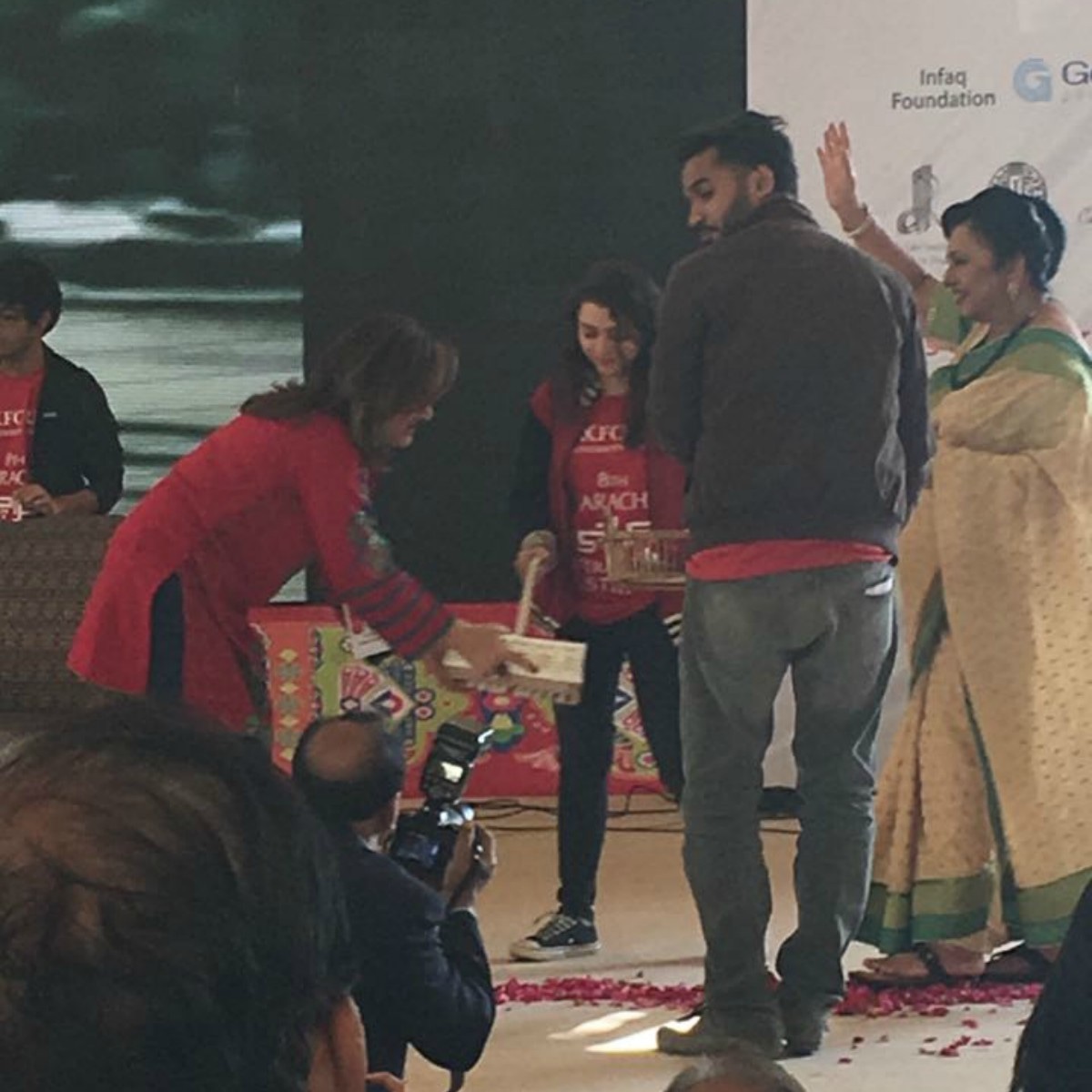
They settle and begin. Says Shabnam, "I decided to leave Pakistan and retire with respect and you people have treated me so well, how can I ever forget that."

About her work, Shabnam says, "If an artist wants, he or she can learn any language for a film, you just need to have passion."
Shabnam remembers her husband, "I'm very happy I came to Karachi Pakistan. It's very sad Robin (Ghosh) is not with me now, I was with him at all times, this the first time I've traveled without him."
"Robinson never said no to me when it came to work. We both trusted each other and he never once asked me why I came home late."
"My husband never involved me in his work. He'd do his work and I'd do mine. I would leave for work at 5 am and he'd do his work, we never interfered with each other's work."
While Shabnam's work ethics suited her life with her husband, it was after she had a child that she realized how she needed to prioritize. "It's after I had my first child that I realised that I was giving no time to my child, And it would really upset me."
An event in her life helped her understand this more. She reveals, "There was a burglary in our house in '78, my son was shaken by it and my friend who was a child specialist in the US told me to send him away from here, that's the reason he's always been abroad. And I've learned after my first child that I don't want a second child because I want all my focus to be directed towards my son who needed it instead of having another child."
Shabnam remembers a time when she had to break her own stereotype of a diva. "I played a mad woman in Akhri Station, there was no make up on me, nothing and I only had one line, everyone told me not to do the film, they said 'Shabnam you're a glamour actor, you'll ruin your career by doing this film' but I refused to listen to these people. I said either I'll do this film or I won't do films at all and I went ahead and did it."
Shabnam and Bushra share a sweet moment!
Shabnam says to Bushra, "I truly enjoy watching your shows on YouTube. You're my most favourite actor."
And Bushra jokes in response, "I was waiting for you to leave (Pakistan) before starting my career because I knew if you stayed I'd never get a chance in acting."
2:15: Shabnam's late but we look at fiction and sneak previews
Traffic got Shabnam late!
But oh well, while we wait, Bushra Ansari entertains!
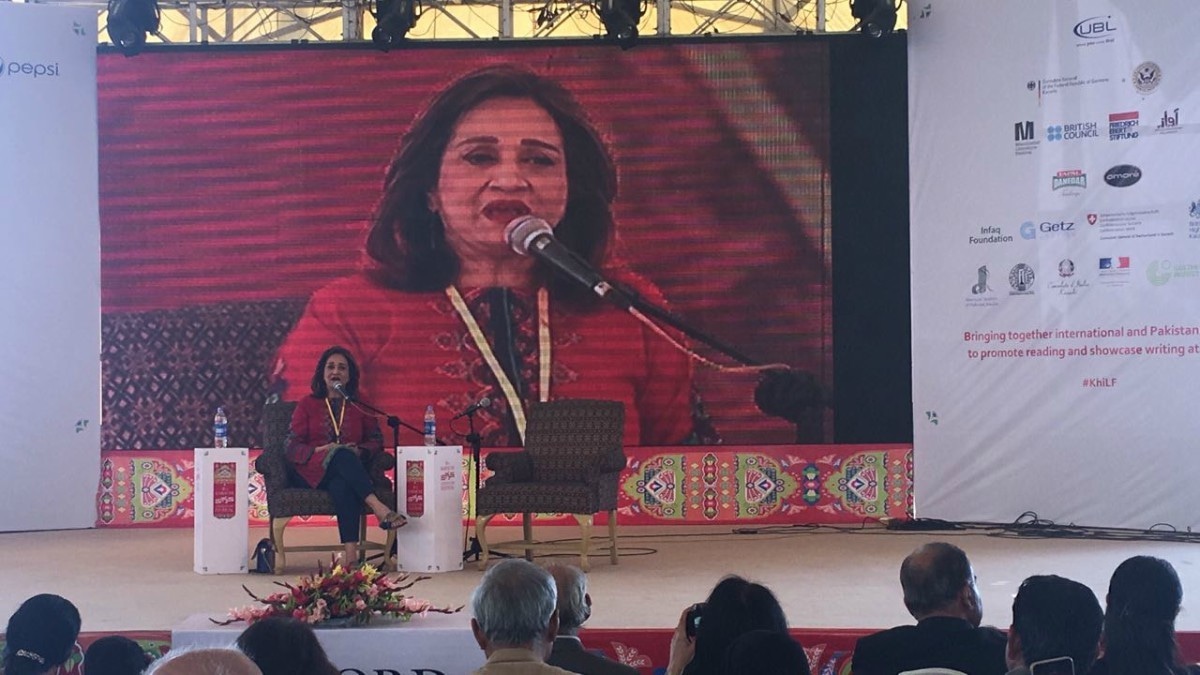
Says Bushra, "I don't call our cinema a revival, I believe it is a new emerging cinema in Pakistan and the one place to have done this is Karachi"
The Big Karachi Novel: Sneak Preview of The Selected Works of Abdullah the Cossack by H. M. Naqvi
About the book, the author says, "The narrator is a scion of a Karachi based business family. He's septagenarian who lives in unfrequented part of Karachi, towards Numaish/Garden. He has to contend with change in fortunes and family fallen apart - literally and figuratively."
Framji notes that the novel is as much about the characters as it is about the city of Karachi.
Naqvi goes on to say, "There was a time when you could hear the roars of the zoo's lions echo through out Garden. Can you imagine that happening especially now when you can barely hear your own thoughts in Karachi? "
About his writing techniques, Naqvi says, "If I don't write 300-500 words of prose a day, I feel worthless."
Fiction: The World Over

Says Ghazi Salahuddin, "We must come to terms with the loss of east Pakistan."
1:15: Book Launches!
That's right. This slot is full of different book launches!
Launch: Sadequain and the Culture of Enlightenment by Akbar Naqvi
"Pakistani artists usually depict Paradise on Earth. Sadequain opened the gates to purgatory and to hell."
Nasreen Askari points out, "Sadequain was a sinner, but he had a strong and rooted faith in the Shia tradition. So he had this duality"
Launch: August Voices by Sudheendra Kulkarni
Matthew A. Cook says, "There is an invisible wall between India and Pakistan."
He explains with his own experience. "The first I notice when I travel to India and Pakistan is that they smell the same, whether you like it or not is a different question."
He says, "There are these connections that have been made invisible by history... This book helps transgress from those differences in a lot of levels."
Sudheendra Kulkarni adds to the topic of differences, saying, "One of the major differences is that we have lost the proper understanding of history even closer to 1947, nobody wanted the kind of partition that happened, there was a demand for a Pakistan but even the top ideologues and thinkers or Pakistan were thinking of a different Pakistan."

Explains Sudheendra, "Just two months before the Lahore resolution 1940, Jinnah was still talking about India as a common land for Hindus and Muslim."
She adds, "Two things went wrong. Firstly, the creation of two countries was one of the most horrendous blood baths this world has ever seen and the main culprit is the British Raj. Secondly, Kashmir. We still haven't been able to resolve that issue. I believe Kashmir should be used as a bridge between India and Pakistan."
Launch: Tum Kabeer and Qila e Faramoshi by Fahmida Riaz
Launch: How Pakistan Got Divided by Maj Gen (R) Rao Farman Ali
12:30: Announcing the KLF Peace Price Winners
Ameena Saiyid takes the stand. She announces she "Would like to publish a common narrative for students in Pakistan and India in the 70th year of Pakistan's history."
Ali Nobil Ahmad is awarded the 3rd KLF Peace Prize for Masculinity, sexuality and illegal migration. Pervez Hoodbhoy makes the announcement.
Masculinity, sexuality and illegal migration explores the myth that economic pressures drive illegal migration, through 60 interviews.
Says Ali Nobil, "My book is an attempt to humanise migrants because they are more often demonised."
Faraznaz Ispahani's Purifying the Land of the Pure is the 2nd prize winner. Ispahani has dug into the absence of peace with emphasis on the state of minorities in Pakistan.

The first prize goes to Anum Zakaria for Footprints of Partition.
The book weaves together her observations of contemporary Pakistan with memories of four generations of Pakistanis and Indians as they try to reflect and make sense of the past.
12:15: Nayee Awazein and fragile states
Pakistan: A Fragile State or Resilient Nation?
Says Ahmed Rashid, "The state now has far more control of foreign policy than ever before and as long as Pakistan uses extremist groups to project their foreign policy we're in trouble."
Nayee Awazain: New Urdu Writers
Saima Iram asks, "You're sitting among men and you're talking like this, you're writing like this, are you trying to be Manto?"
Rafaqat Hayat points out the issue of bold language, saying, "I was talking at a season with men and women in attendance, during which when I used bold words everyone went haw how could he, so people in Pakistan are still puerile about bold words whether they come from a man or a woman."
Syed Kashif Raza adds to the problem of bold language by speaking on bold topics themselves. He says, "I thought for four years before writing about rape in a humourous light, but I felt it's something that needs to be highlighted. We feel that when something is written in English it's fine but when it's written in Urdu it's not."
International and Regional Politics impacting South Asia
Launch: The Party Worker by Omar Shahid Hamid
Omar Shahid Hamid draws on his experiences as a police officer in his book.
"I fundamentally see myself as a police officer," says Hamid, adding, "Writing is something I do, it's like an obsession, but I am really a police officer."

Omar Shahid Hamid, opened the floor for questions. An audience member asked him,"How important is it that your book be accessible to a non-Pakistani audience?"
Hamid answers, "I believe if you tell a good story it doesn't matter where it's set. If you take a book like the godfather you don't have to have lived abroad to appreciate them."
Another audience member asks, "Since you are in the police and have access to sensitive info, do you self-censor?"
To which Hamid admits, "A lot of material in the book is watered down. You haven't seen anything yet."
11:00: Past to present and religious minorities
Launch: Nobody Killed Her by Sabyn Javeri
About her motivation to write Nobody Killed Her, Sabyn says she wrote the novel "to just have some fun". For her it was more of an exercise of creating something fun without any pressure of publishing.
This is not Sabyn's first experience in writing. She reveals she has written a book called Once we were Beautiful which was about partition. But that book never got published, although it was nominated for an award. It was never accepted by any publishing houses because it wasn't anything unique to them.
Sabyn says she wanted to create "A really kick-ass heroine, who wants to be the unsuitable girl. The one who wants to break out of submissive Muslim woman in a hijab mode."
Ayesha Tammy Haq points out something that irks her. "The only issue I have with this book is that the character is based on Benazir Bhutto. If you're living in Pakistan, you'll only focus on that. People will forget it's fiction," says Haq.
Sabyn responds to Haq's criticism by saying "If I'm writing about a female Muslim politicians who has been assassinated, there will be comparisons. But it's a work of fiction, and noone can expect to find answers for her assassination from this book."
Sabyn Javeri announces her second book launch will take place on March 10 at Liberty Books, BBQ Tonight.
Minorities in Pakistan’s Legal System
Hilda Saeed claims, "Kids are not taught about other religions in public schools."
Maliha Zia adds to the claim, "There is no voice or narrative of religious minorities in Pakistan."
Ashothama Lohano agrees, while explaining, "Our constitution must be rewritten because it is inherently discriminatory against religious minorities."
On bringing about equality and equity in the Islamic Republic of Pakistan, Maliha Zia says, "I strongly believe that no matter what the name is of a country there are certain fundamental rights that must be given to all citizens."
Bringing the Past into the Present
Ayesha Jalal, in conversation with Noman ul Haq, says, "On this corruption, I want to say that Gandhi was opposed to Partition."

An audience member asked Ayesha Jalal, "As a historian, I'd like to see how you'd paint Pakistan in 2017."
Ayesha Jalal comments, "It's time for Pakistan to realise that the time to sit on your backs and wait for the Heavens to give you something is over."
Framji Minwalla adds to that, saying, "I think people have given up, they've stopped exercising their right because they feel nothing's going to happen."
Jalal points out what the issue truly is. "Absence of analytical thinking is a major problem of Pakistan," Says Jalal.


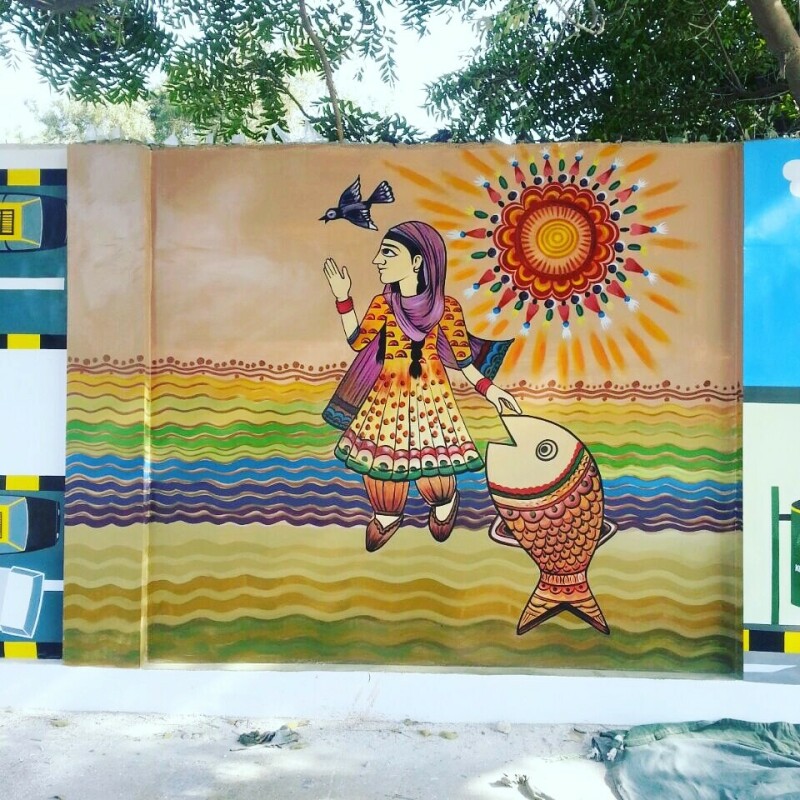
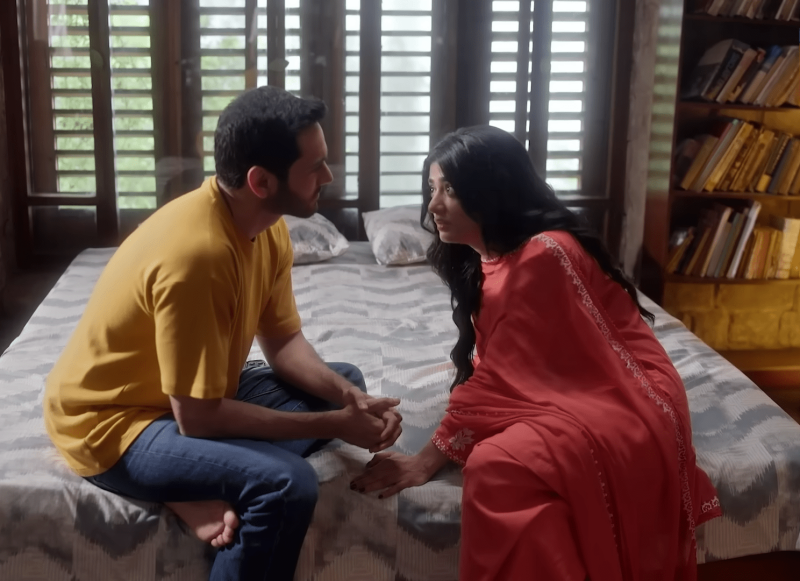

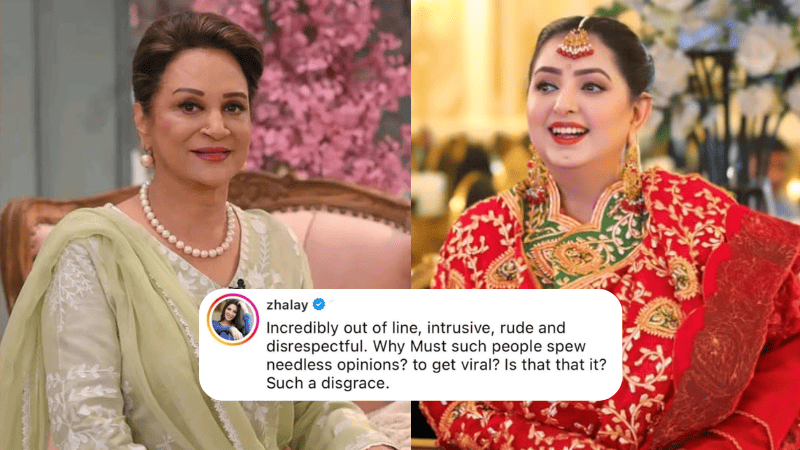
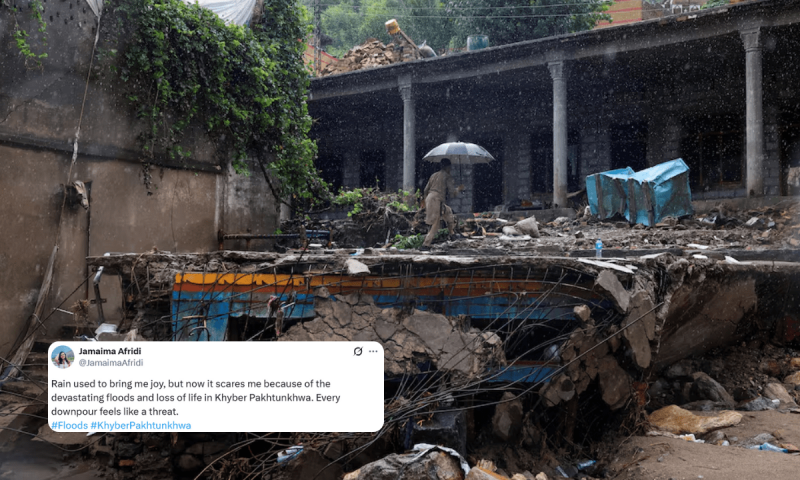

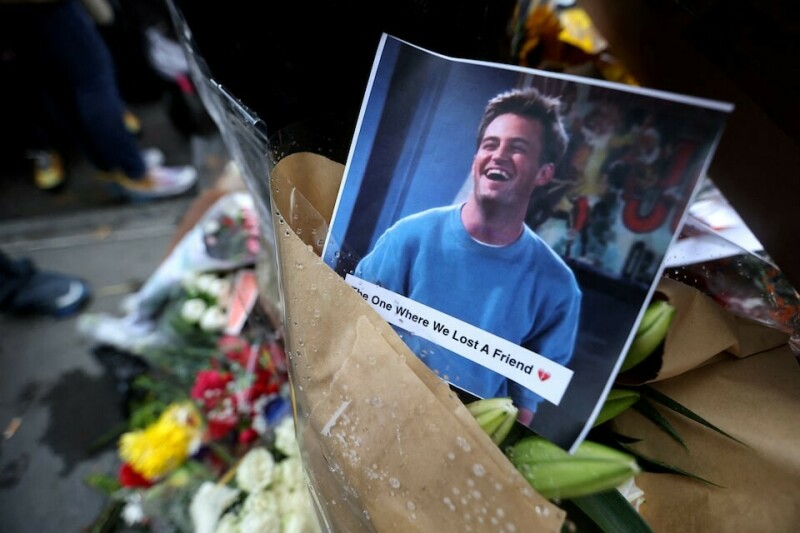
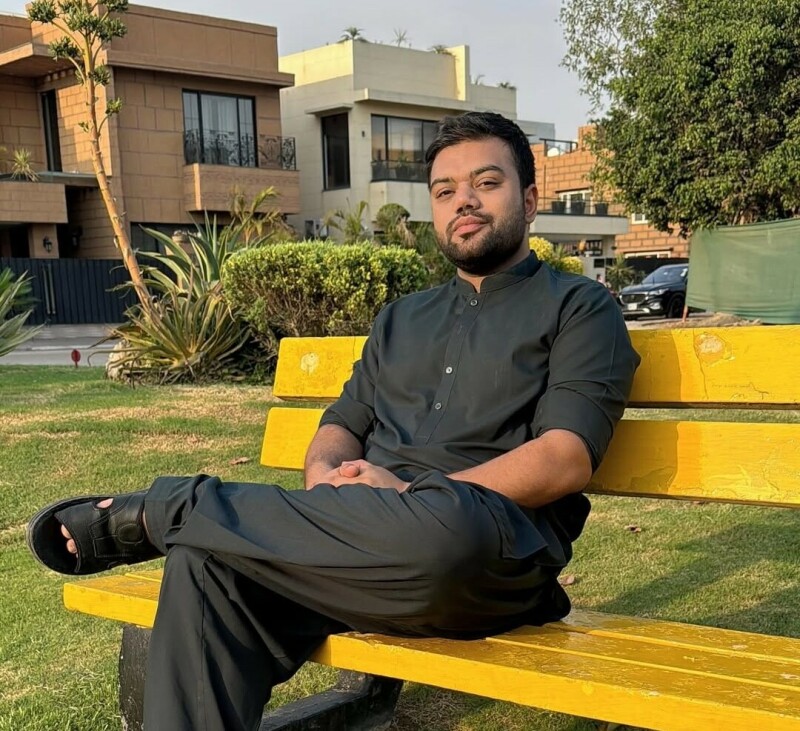
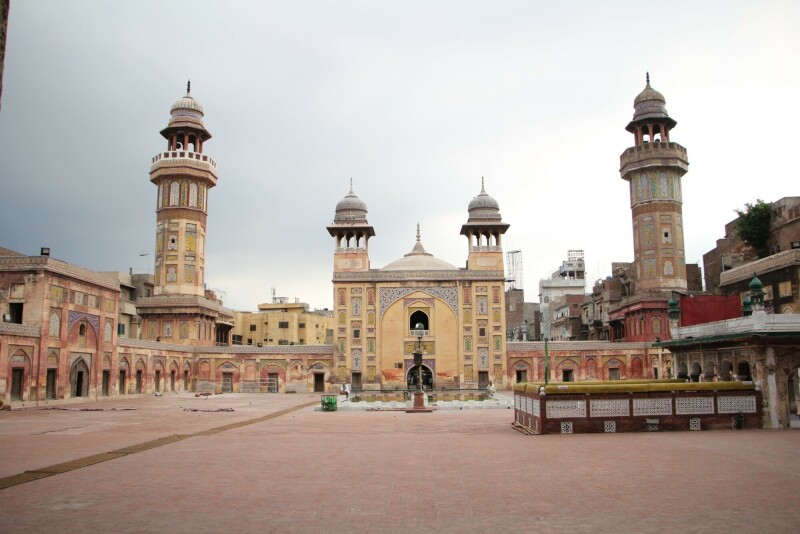

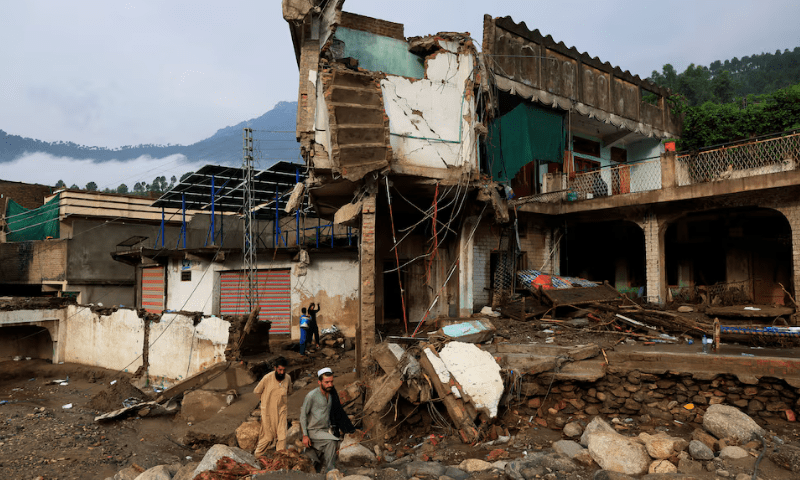
Comments